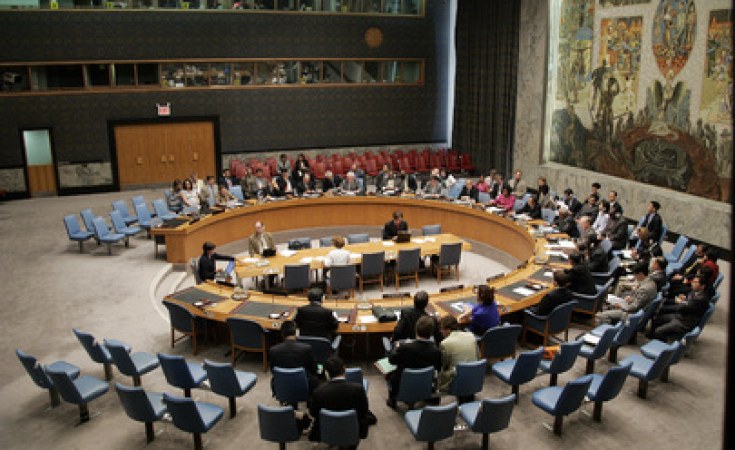The ECOWAS Mediation and Security Council has recommended the immediate imposition of punitive and targeted sanctions on individuals and groups found to be obstructing the political transition in Mali or keeping the north of the country under siege and despicable human rights and humanitarian conditions.
This is one of the recommendations made to the Authority of ECOWAS Heads of State Government by the just-concluded one-day extraordinary meeting of the Council which was attended by Ministers of Foreign Affairs and Defence held on 17th September 2012 in Abidjan, Cote d'Ivoire.
The Council also called for a review of the ECOWAS sanctions regime, including the modalities and sequencing of targeted and general sanctions, in order to achieve an effective, graduated and incremental regime. Council equally recommended a re-examination of the terms and conditions required for a Member State under sanctions to regain full membership of ECOWAS.
The ministers reiterated their preference for dialogue in resolving the dual- faceted crisis in Mali with a regional force to be deployed only as a last resort. To this end, the Council urged the Transitional Authorities to institute the National Committee for Negotiations to facilitate direct dialogue between the Government of Mali and rebels in the north of the country.
However, Council requested the ECOWAS Commission to continue its preparations to put the regional Mission in Mali (MICEMA) in a high state of readiness in preparation for deployment.
During the meeting, the ministers reviewed the political and security situations in Mali and Guinea Bissau following the formal request by the Government of Mali for ECOWAS' military assistance to recover the country's occupied northern territory and combat terrorism.
The Council noted the formation of the Government of National Unity in Mali and requested the transitional authorities to ensure that the Government executes the transitional road map in consonance with the decisions of regional leaders.
It adopted the report of the Committee of ECOWAS Chiefs of Defence Staff which ended a two-day emergency meeting on 15th September 2012 in Abidjan. This includes intensifying contacts with the neighbouring States of Algeria and Mauritania to agree a consensus on the ECOWAS-led deployment of the stabilization force in Mali.
The Council called for a consultative meeting of the Support and Follow-up Group on the situation in Mali to be convened under the joint chairmanship of ECOWAS and the African Union (AU).
It also requested the ECOWAS Commission to organize a planning meeting with the AU and the UN, in consultation with other partners, to develop a harmonized approach to the intervention.
On the situation in Guinea Bissau, the Council discussed the electoral roadmap unveiled by the National Electoral Commission including anticipated legislative and presidential elections in the country by April 2013.
It called for the re-launch of dialogue with all stakeholders, including the majority party, Partido Africano da Independencia da Guine e Cabo Verde (PAIGC).
The Council lauded the continued efforts by the transitional authorities and the other internal stakeholders towards broadening the base of the Transitional Government as well as the implementation of the transitional roadmap.
The ministers emphasized the need for the Transitional Authorities and the National Electoral Commission of Guinea Bissau, with the facilitation of ECOWAS, to ensure that the general elections anticipated in April 2013 are inclusive and conducted in a free, fair, transparent and credible manner.
They expressed their appreciation to the ECOWAS Mission in Guinea Bissau (ECOMIB) and the troop-contributing countries for their efforts, and urged the Commission to help ensure the success of the Mission.


